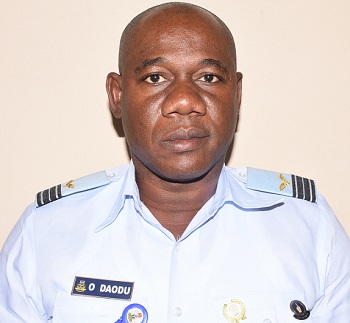The department started as Works and Services School in October 2004, and it was tasked with carrying out military courses for the Air Force Institute of Technology. It was later upgraded to Civil and Environmental Engineering Department in December 2008. The Department (CEED) is under the Deanship of the School of Ground and Communication Engineering.
The Department has the mandate of producing reliable and competent Civil Engineers as well as highly skilled artisans for all NAF works disciplines. Courses are delivered through lectures, tutorials, laboratory and field work. These are all in addition to scheduled educational visits to construction sites and operational areas like the NAF Hangar and airstrip, aimed at consolidating classroom works. The Department also conducts Civilian Courses which include a postgraduate Diploma in Construction Technology, Bachelor of Engineering in Civil Engineering, National Diploma in Civil Engineering Technology. For Military Courses, the Department Conducts Initial Works Officers Course (IWOC), Works Supervisors Course (WSC), Airmen Basic Upgraders Course (ABUC) and Airmen Advanced Upgraders Course (AAUC).
Civil Engineering Philosophy/ Guiding Principles
The department is one of the foundational departments in AFIT. The elevation of AFIT into a degree awarding institution in 2018 necessitated the review of its initial mandate from equipping and training the Air force personnel, into preparing a crop of young Nigerians to meet the need in infrastructure development, and contribute to narrowing the infrastructural deficit in the country. The development of human capacity and character of the students admitted is expected to primarily help Nigeria join the league of developed nations and to contribute globally.
Objectives
The objectives of the department are to:
- Promote critical learning skills among undergraduates, where they are able to initiate individual and group inventions.
- Furnish students with opportunities to undertake research that are vital to the Nigerian society.
- Provide the enabling environment where undergraduates are exposed to practise and theory in their programme, and transfer of knowledge and skills from experienced lecturers are encouraged.
- Mould the character of undergraduates for optimal service delivery and performance after their tertiary education.

